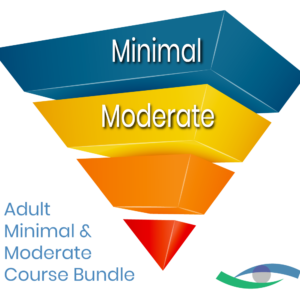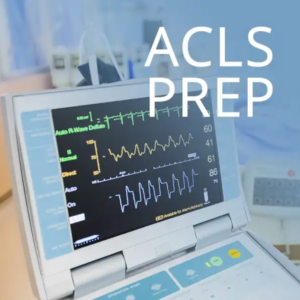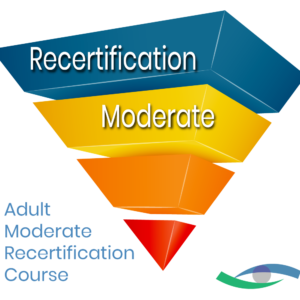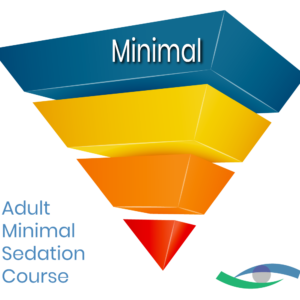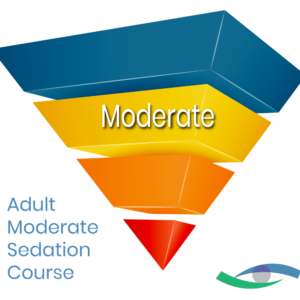How Sedation Training Builds Patient Trust
Patients routinely place their trust in the knowledge and skills of their healthcare providers. For non-anesthesia medical professionals, demonstrating skill and professionalism during sedation is a major component of earning and maintaining that trust. Today’s clinical procedures increasingly rely on minimal or moderate sedation to make interventions smoother and more tolerable for patients.
Why Sedation Training Matters
Minimal and moderate sedation are widely used across clinical and outpatient settings, from routine endoscopies to dental implants. Proper training helps providers administer sedation safely while maintaining patient responsiveness and physiological stability. Professional sedation skills blend patient assessment, vigilant monitoring, rapid response to complications, and clear communication. This skill set allows providers to do the following:
- Assess appropriateness for sedation: Proper training teaches clinicians how to review medical history, medications, allergies, and comorbidities to determine if a patient is a safe candidate for sedation.
- Manage the sedation continuum: Sedation does not occur in discrete steps. Instead, patients can shift unexpectedly from minimal to moderate sedation and from moderate to deep sedation. Trained providers understand how to monitor these changes and respond effectively.
- Address complications: Adverse effects like airway obstruction, hypotension, or oversedation can develop rapidly. Training ensures providers recognize early warning signs and intervene appropriately.
- Provide patient-centered sedation care: A trained provider can individualize the depth of sedation based on the patient’s needs, the nature of the procedure, and continuous real-time assessment.
How Sedation Training Strengthens Patient Trust
Anxiety about medical procedures is common and often rooted in concerns about pain, uncertainty, or complications. Seeing a provider who is trained and certified in sedation care offers immediate reassurance. Patients who feel safe are more likely to communicate openly, follow instructions, and engage with their healthcare team.
Trust begins during the consultation. Patients quickly pick up on a provider’s confidence and preparedness when they’re able to explain the sedation process clearly and answer the patient’s questions thoroughly. This confidence eases anxiety even before medications are administered.
Trust and safety in healthcare are interwoven, and the provider’s visible competence in sedation management reinforces both. Here are the benefits of building patient trust through sedation training:
- Greater patient compliance: Trust improves adherence to pre- and post-procedure instructions for a better chance of success and faster recovery time.
- Higher patient satisfaction: Sedated patients who feel respected, heard, and comfortable report higher satisfaction scores.
- Increased referrals and retention: Satisfied patients are more likely to return for future care and recommend the provider to friends and family.
Professional Sedation Skills Improve Patient Outcomes
Patient-centered sedation care doesn’t just inspire confidence—it drives better clinical results. Sedation training benefits both patients and providers in several ways:
- Shorter procedure times: Skilled sedation management keeps patients comfortable and cooperative so the procedure can advance efficiently.
- Fewer complications: Training reduces the likelihood of adverse sedation events, including desaturation and deep sedation mishaps.
- Faster recovery: Properly sedated patients have fewer side effects, transition more smoothly from sedation to alertness, and are discharged in less time.
- Reduced provider stress: Confidently managing a sedated patient minimizes the provider’s mental burden during procedures, allowing them to focus on the task at hand and minimizing errors.
Standardized Sedation Education from NSC
Formal training in minimal, moderate, and procedural sedation is often overlooked in medical and dental curricula. Schools tend to include sedation under broader pharmacology or emergency modules, leaving little room for practical instruction on how to administer it in real-world outpatient settings.
As more procedures have shifted out of the operating room and into clinics and specialty practices, the demand for focused sedation training has grown. That’s why The National Sedation Center (NSC) developed our structured, evidence-based program, the first centralized and standardized system for training non-anesthesia healthcare providers.
The benefits of standardized sedation training from NSC include:
- Consistent skill development: Regardless of medical background, providers who complete a standardized course acquire a common foundation of sedation knowledge. This ensures that every certified individual meets a uniform benchmark for safe, effective sedation care.
- Emphasis on airway management: Airway compromise is among the most serious risks associated with deeper-than-intended sedation. Our training emphasizes the skills and tools needed to assess and manage the airway confidently, particularly in situations where a patient unexpectedly transitions from moderate to deep sedation.
- Recognition of certification: Earning certification through a credible, structured training program signals a provider’s commitment to high standards and patient safety. Facility owners are reassured, knowing their staff has been assessed against rigorous clinical and educational criteria. Providers also strengthen their professional profile and gain access to better jobs and higher pay.
- Inclusion in the National Registry: Certified providers are added to the National Registry or Primary Source Verification database as verifiable proof of training. This listing provides transparency for employers, credentialing bodies, and patients seeking assurance about a provider’s qualifications.
- Free airway skills verification: After completing the Adult Moderate Sedation course, providers can schedule a complimentary 20- to 30-minute airway skills verification session via Zoom. This added support is a chance to demonstrate practical competency and interact directly with experienced instructors in a convenient, low-pressure setting.
Get Certified Today
Professional sedation skills are fundamental to building patient trust, improving outcomes, and elevating standards of care across multiple outpatient disciplines. Choose NSC’s standardized, evidence-based sedation education program to gain the confidence, certification, and practical skills you need. Our courses fill a critical educational gap in managing minimal and moderate sedation. We are the only organization with a dedicated network of instructors across the US and Canada to offer in-person skill verification.
Contact us today if you have any questions, or register for an adult sedation course online. When you do, you’ll join thousands of professionals nationwide who are enhancing their skills, earning patient trust, and advancing their careers with patient-centered sedation care.


